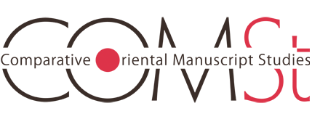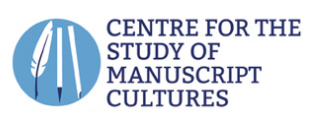Teams 2009-2014
At the time of its launching, the COMSt Network included scholars from thirteen European countries who were organized into five teams, each focusing on one of the following areas of manuscript studies: 1) Material aspects: codicology, palaeography; 2) Manuscripts as text witnesses: philology as text criticism; 3) Digital approaches to manuscript studies; 4) Manuscript cataloguing; 5) Manuscript preservation: conservation, restoration, preservation, digitization. Each team will unite researchers working on different ancient Oriental written cultures, mainly Arabic, Coptic, Aramaic and Syriac, Ethiopic, Armenian, Georgian, Byzantine Greek etc. Teams will organize regular workshops devoted to specific aspects of these topics and eventually contribute to the creation of a joint digital resource and a methodological textbook.
Interdisciplinary team meetings, uniting scholars working in different COMSt teams but on the same language material, enriched the ensuing debate. The COMSt Network also invited scholars from outside the programme to join into the virtual discussion.
The results are reflected in the respective chapters of the COMSt Handbook Comparative Oriental Manuscript Studies. An Introduction (Hamburg, 2015).
Team 1: Codicology. Palaeography.
Team 1 dealt in the first place with codicology, or the archaeology of the book, and with palaeography, or the history of scripts and writing practices. Whilst codicology involves the study of the material and physical history of codices and, in more practical terms, the study of codex production in all relevant contexts, including with a view to identifying scriptoria, modalities of circulation, economic aspects etc., palaeography deals with the peculiarities of writing, its gen-eral development and dating, as well as the social aspects involved in the practice of writing. The points of discussion range from the state of research in different regional fields to material carriers (parchment, paper), physical shape (scroll, codex), indigenous vs imported materials, etc.
The team worked on all aspects of manuscript preparation, from the chemical or physical preparation of parchment and paper to writing materials and tools and binding tech-niques, with particular attention to comparing approaches and the state of knowledge about writing techniques and traditions, scriptoria, schooling and the social role of scribes and calligraphers.
Since the issues of manuscript illumination techniques and models, periodization and interpretation of images and symbols, the personality and social role of the illustrator, canon and artistic freedom are, in the Oriental context, the subject of art history, art historians were invited to team workshops.
Team leader 2009-2014: Marilena Maniaci, Università degli studi di Cassino e del Lazio Meridionale, Dipartimento di Filologia e storia. E-mail: m.maniaci@unicas.it
Team members (2012):
1. Felix Albrecht, Germany
2. Malachi Beit-Arié, Israel
3. Annie Berthier, France
4. Pier Giorgio Borbone, Italy
5. Françoise Briquel Chatonnet, France
6. Willy Clarysse, Belgium
7. Ralph Cleminson, Hungary
8. Francois Déroche, France
9. Stephen Emmel, Germany
10. Dickran Kouymjian, France
11. Marilena Maniaci, Italy
12. Tamara Pataridze, Belgium
13. Ira Rabin, Germany
14. Valentina Sagaria Rossi, Italy
15. Petra Sijpesteijn, Netherlands
16. Annie Vernay-Nouri, France
Cooperating members of other teams:
1. Ewa Balicka Witakowska (team 5), Sweden
2. Paola Buzi (team 4), Italy
3. Denis Nosnitsin (team 4), Germany
Workshops team 1
Team 2: Philology. Critical text editing.
Team 2 worked on a unified approach to manuscripts as text carriers. It united scholars focusing on the philology of different Oriental traditions. The main goal of text criticism is to establish the original reading of texts and their transmission history, by comparing and analysing their different witnesses, also with the consideration that material philology can es-tablish physical relationships between them. While the disciplines of team 1 can help to establish criteria for dating manuscripts, text criticism is the procedure for establishing the correct form of a text at a given stage of its textual history, and as such is an essential part of literary history and historical studies, as well as a constituting major chapter in the history of culture and humanities. The philology of documentary texts, dealing with official records, charters and grants, is a specialised form of text criticism aimed at establishing the authenticity and historical significance of documents, however on the basis of common methodology. Team 2 worked towards establishing cross-cultural standards for critical text editions. It collaborated with team 3 on introducing computer-supported technologies in philological work and with team 4 on unifying the approach to manuscript cataloguing incorporating the description of texts.
Team leaders: 2009-2012: Johannes den Heijer, Université Catholique Louvain; 2013-2014: Caroline Macé, Katholieke Universiteit Leuven, Belgium. Email: Caroline.Mace@arts.kuleuven.be; Lara Sels, Katholieke Universiteit Leuven, Belgium. Email: Lara.Sels@UGent.be.
Team members (2012):
1. Valentina Calzolari Bouvier, Switzerland
2. Alberto Camplani, Italy
3. Laurent Capron, France
4. Marie Cronier, France
5. Lorenzo Cuppi, Belgium
6. Johannes Den Heijer, Belgium
7. Zuzana Gazakova, Slovakia
8. Antonia Giannouli, Cyprus
9. Kessel, Gregory, Germany
10. Johannes den Heijer, Belgium
11. Paolo La Spisa, Italy
12. Hugo Lundhaug, Norway
13. Caroline Macé, Belgium
14. Michael Marx, Germany
15. Alessandro Mengozzi, Italy
16. Sébastien Moureau, Belgium
17. Denis Searby, Sweden
18. Lara Sels, Belgium
19. Susana Torres Prieto, Spain
20. Wido van Peursen, Netherlands
21. Witkam, Jan Just, Netherlands
22. Ugo Zanetti, Belgium
Cooperating members of other teams:
1. Tara Andrews (3), Belgium
2. Jost Gippert (3), Germany
3. Andrea Schmidt (4), Belgium
4. Matthew Driscoll (3), Denmark
5. Alessandro Bausi (3), Germany
Workshops team 2
Team 3: Digital approaches to manuscript studies.
Team 3 dealt with a field intrinsically connected with that of team 2 as it will discuss and re-fine the methods and technical means of digital philology: the state of research; possibilities and difficulties of manuscript digitization; automatic text recognition; text comparisons; peculiarities for Oriental manuscript traditions; script recognition software and critical text editions software. Means for public access to digitized forms will be explored. Since the practical outcome of activities of team 3 are of paramount practical importance for team 2, both groups worked in close co-operation. Cooperation with team 4 concerned evaluating digital manuscript catalogues and hypercatalogues.
Team leader 2009-2014: Jost Gippert, Dept. of Comparative Linguistics, Frankfurt University, Germany. E-mail: gippert@em.uni-frankfurt.de
Team members (2012):
1. Tara Andrews, Belgium
2. Alessandro Bausi, Germany
3. Christian Brockmann, Germany
4. Alberto Cantera, Spain
5. Daniel Deckers, Germany
6. Matthew Driscoll, Denmark
7. Christophe Flueler, Switzerland
8. Jost Gippert, Germany
9. Verena Lepper, Germany
10. Caroline Macé, Belgium
11. Tito Orlandi, Italy
Workshops team 3.
First Workshop, 2010
From 2011 onwards, team 3 participated to all workshops by other teams.
Team 4: Cataloguing.
Team 4, with the methodological and technical support of teams 1, 2, and 3, concentrated on cataloguing issues. Recently numerous cataloguing activities have been underway in Europe, with the aim of making information available to a broad circle of users and scholars working in different areas of cultural, religious and literary studies. A comparison of both older and more recent catalogues revealed large discrepancies in the criteria used for both physical and content descriptions of manuscripts. The cataloguers as specialists in the language and culture of the texts of the manuscripts seldom have training in standard codicological cataloguing procedure, an average level of which is not simple to define. It is important to guarantee, however, that all documents are described according to a unified standard and provide the maximum of information in brief on shape, binding, materials used, dimensions, contents, incipits, marginalia, ornaments and illuminations, as well as available bibliography and the place of the codex in previous studies, text editions and information on availability and accessibility (in digital or microfilm form). Team (4) established the necessary elements of description and contribute to the creation of electronic catalogues.
Team leaders 2009-2014: Witold Witakowski, Dept. of linguistics and philology, Uppsala University, Sweden. E-mail: wwitakowski@hotmail.com; Paola Buzi, Dip. di Storia, Culture, Religioni, Università degli studi di Roma "La Sapienza", Italy. Email: buzi@rmcisadu.let.uniroma1.it
Team members (2012):
1. Per Ambrosiani, Umea, Sweden (Old Slavonic)
2. Patrick Andrist, Bern, Switzerland (Greek)
3. Daniele Bianconi, Italy (Greek)
4. Andre Binggeli, Paris, France (Greek, Syriac)
5. Paola Buzi, Rome, Italy (Coptic)
6. Ina Hegenbarth, Hamburg , Germany (Coptic)
7. Irina Lysen, Uppsala, Sweden (Slavic)
8. Vrej Nersessian, London, UK (Armenian)
9. Denis Nosnitsin, Hamburg, Germany (Ethiopic)
10. Arianna d'Ottone, Italy (Arabic)
11. Bernard Outtier, Paris, France (Georgian, Armenian)
12. Tamara Pataridze, LouvainlaNeuve, Belgium (Georgian)
13. Irmeli Perho, Copenhagen, Denmark (Arabic, Persian)
14. Delio V . Proverbio, Vatican (Turkish)
15. Christoph Rauch, Berlin, Germany
16. Andrea Schmidt, LouvainlaNeuve, Belgium (Armenian, Georgian)
17. David Sklare, Jerusalem, Israel (Hebrew)
18. Witold Witakowski, Uppsala, Sweden (Ethiopic, Syriac)
19. Michel Verweij, Leuven, Belgium (Classical studies)
Collaborating members of other teams:
1. Marilena Maniaci (team 1), Italy
2. Paul Canart, Vatican
3. Jost Gippert (team 3), Germany
4. Peter Gumbert, Netherlands
Team 4 Workshops.
Team 5: Preservation and conservation.
Team 5 dealt with manuscript preservation. Exchange and research concentrated on the following factors: the physical state of manuscripts in different culture regions and in libraries; the conditions of storage; the steps to be taken towards the preservation of unique cultural heritage; educational programmes for librarians; co-operation with international cultural or-ganizations (supra-regional research centres, UNESCO, etc.) and running projects (Saint Catherine’s Library Conservation Project etc.). Starting from the codicological base provided by team 1 and the theory of manuscript preparation, possibilities for region-specific manuscript restoration were explored. In close cooperation with team 3 criteria for digitization – i.e. digital preservation – of manuscripts were discussed. The work also moved towards establishing the state of the art in which collections have been approached from the point of view of conservation and deciding which small forgotten European manuscript collections might need adequate attention and/or restoration. Of foremost importance was coordination, mainly with respect to the exchange of information and experience regarding activities in the field.
Team leaders: 2009-2013: Stéphane Ipert, Centre de Conservation du Livre, Arles, France. E-mail: s.ipert@gmail.com; 2013-2014: Laura Parodi, Genoa, Italy. Email: laurae.parodi@googlemail.com.
Team members (2012):
1. Ewa Balicka-Witakowska, Sweden
2. Paul Hepworth, Turkey
3. Adam Larsson, Sweden
4. Stéphane Ipert, France
5. Manfred Mayer, Austria
6. Joseph Moukarzel, Lebanon
7. Laura Parodi, Italy
8. Ira Rabin, Germany
9. Arietta Revithi, Greece
10. Nicholas Sarris, Greece
11. Karin Scheper, Netherlands
12. Athanasios Velios, UK
13. François Vinourd, France


